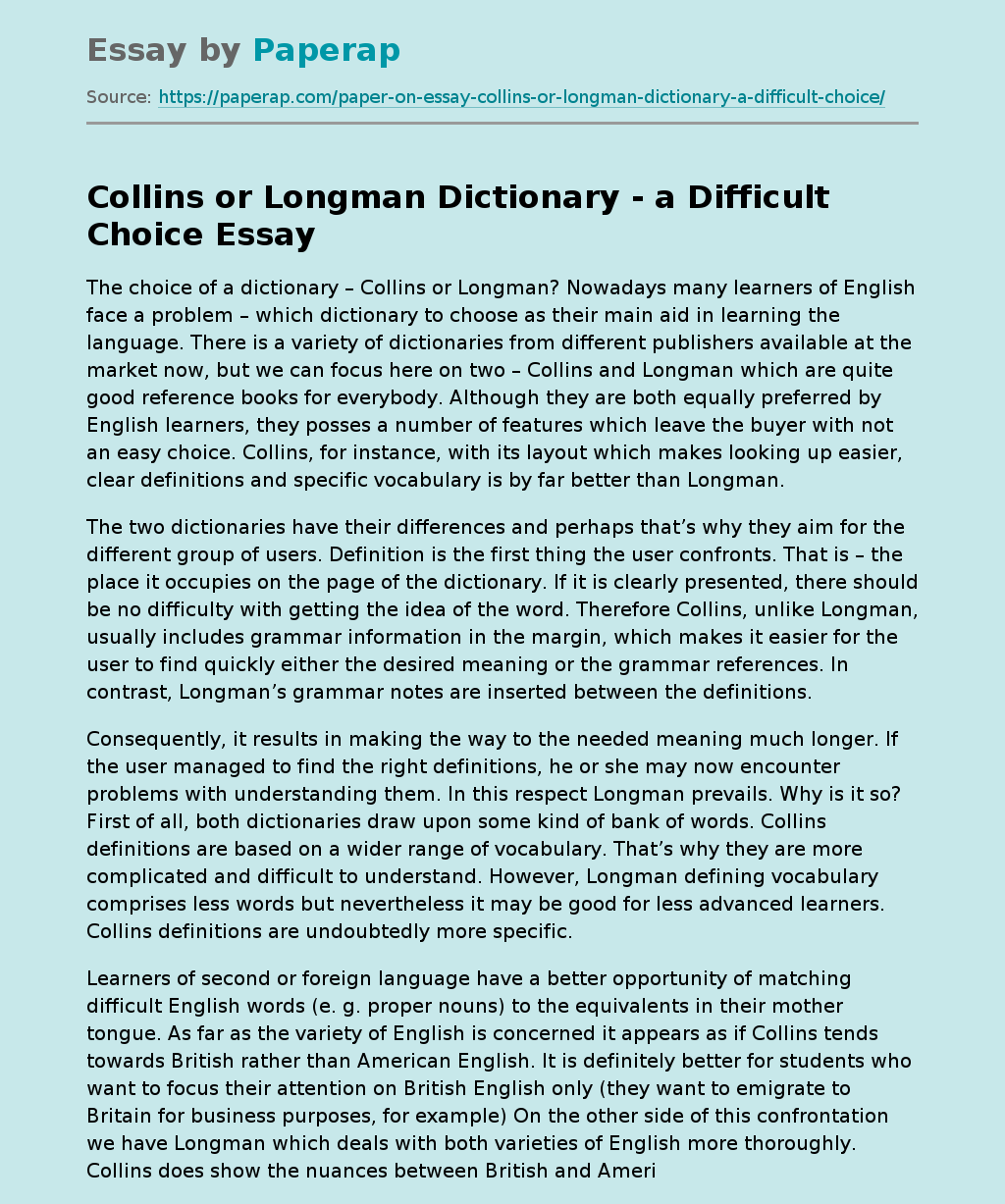Collins or Longman Dictionary - a Difficult Choice
Nowadays many learners of English face a problem – which dictionary to choose as their main aid in learning the language. There is a variety of dictionaries from different publishers available at the market now, but we can focus here on two – Collins and Longman which are quite good reference books for everybody. Although they are both equally preferred by English learners, they posses a number of features which leave the buyer with not an easy choice. Collins, for instance, with its layout which makes looking up easier, clear definitions and specific vocabulary is by far better than Longman.
The two dictionaries have their differences and perhaps that’s why they aim for the different group of users. Definition is the first thing the user confronts. That is – the place it occupies on the page of the dictionary. If it is clearly presented, there should be no difficulty with getting the idea of the word. Therefore Collins, unlike Longman, usually includes grammar information in the margin, which makes it easier for the user to find quickly either the desired meaning or the grammar references.
In contrast, Longman’s grammar notes are inserted between the definitions.
Consequently, it results in making the way to the needed meaning much longer. If the user managed to find the right definitions, he or she may now encounter problems with understanding them. In this respect Longman prevails. Why is it so? First of all, both dictionaries draw upon some kind of bank of words. Collins definitions are based on a wider range of vocabulary.
That’s why they are more complicated and difficult to understand. However, Longman defining vocabulary comprises less words but nevertheless it may be good for less advanced learners. Collins definitions are undoubtedly more specific.
Learners of second or foreign language have a better opportunity of matching difficult English words (e. g. proper nouns) to the equivalents in their mother tongue. As far as the variety of English is concerned it appears as if Collins tends towards British rather than American English. It is definitely better for students who want to focus their attention on British English only (they want to emigrate to Britain for business purposes, for example) On the other side of this confrontation we have Longman which deals with both varieties of English more thoroughly.
Collins does show the nuances between British and American English but it erhaps isn’t so much concerned with colloquial American English and slang. In this field Longman is more universal. Thus, it is more suitable for younger learners or just for those at lower level of proficiency. Moreover, what goes for register, Longman may be more useful for people who want to explore the informal language (those young people who look for the sense of their favourite songs, for example). The two dictionaries aim to provide excellent help in studying a language. In this process, Collins is for those who have already tasted what English really is whereas Longman is for the novices who want to become familiar with that taste.
Collins or Longman Dictionary - a Difficult Choice. (2016, Nov 11). Retrieved from https://paperap.com/paper-on-essay-collins-or-longman-dictionary-a-difficult-choice/

